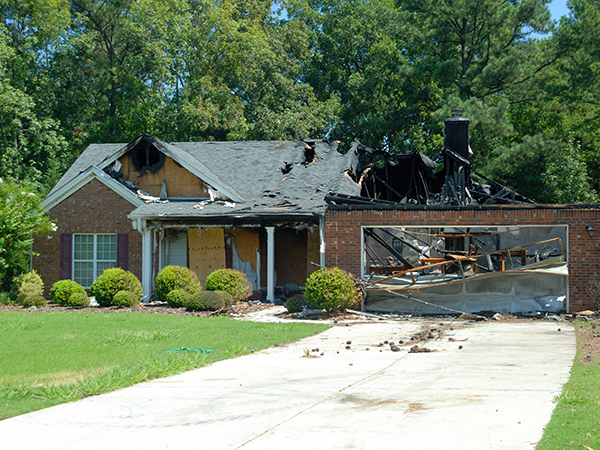4 Tips on Preparing for the Unexpected
We all hope to never face a significant loss to our property. Beyond the suffering from losing those things that cannot be replaced, the damage from fire, flood, earthquake, or other disaster can put our records and personal information in disarray and potentially wreak havoc on your finances. Taking these basic proactive steps now could help to prevent a difficult situation from getting worse.
- Organize and Safeguard Your Data
Review where you keep your financial records and legal documents, such as tax returns, estate documents, account statements, insurance policies, as well as personal identification like driver’s licenses, birth and marriage certificates, passports, and social security cards. Creating a document locator can help keep track of where items are stored and may be very useful should someone else need to access them for you. With the ever-growing risk of identity theft and fraud, carefully storing documents is becoming increasingly important. Original documents that are not used frequently can be held safely in a deposit box at your bank. You can also electronically scan and store records in an encrypted file format. Consider using a secure cloud storage service so your information is backed up off-site and you can access it remotely. Finally, providing copies of these documents to your financial advisor can also be a good way to maintain access to records.
- Take an Inventory
When filing a claim for damage to property, most insurance providers will require you to substantiate the value of the property. While this can be done after a loss event has occurred through the use of credit card statements, receipts, or appraisals, building a comprehensive list now could result in a more efficient and favorable claim resolution. You can accomplish this by using inventory lists provided by your insurance company or samples found online, but an easier first step for most is to initially document everything through photos or even videos. Be sure to include every room, including the basement and garage, and even the insides of closets and drawers. When going through this process, consider whether any of your valuables have been appraised recently and, if not, whether they should be. The more complete of a record you have, the better off you will be in the event the information is needed.
- Document Key Contacts
Create a list of contact information for those people you may need to get in touch with in an emergency, such as your family members, doctors or healthcare providers, attorneys, utility or insurance providers, etc. Keep this list in an easy-to-access location.
- Talk With Your Family
Oftentimes, a single member will take the lead role in managing the finances of the family. In a situation where something should happen to that individual, it can leave others burdened with the additional task of searching for information while having to cope with the unfortunate event. This is why it is important for multiple individuals to know where to find information and whom to contact regarding financial matters. Have a conversation with your spouse, significant other, children, or other individuals that you trust to make sure they know where to start should something happen to you. Your financial advisor can also be a great point of contact given that he/she may be familiar with and have contact information for those whom you will need to get in touch with. You may want to consider introducing your close family members to your advisor as well, in case something happens to you.
Dealing with a disaster is hard enough as it is. Spending the time to prepare now can help to reduce additional work and stress later.
